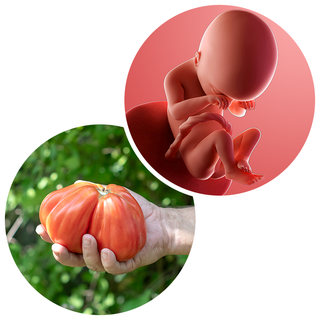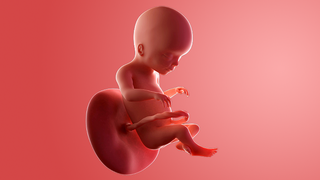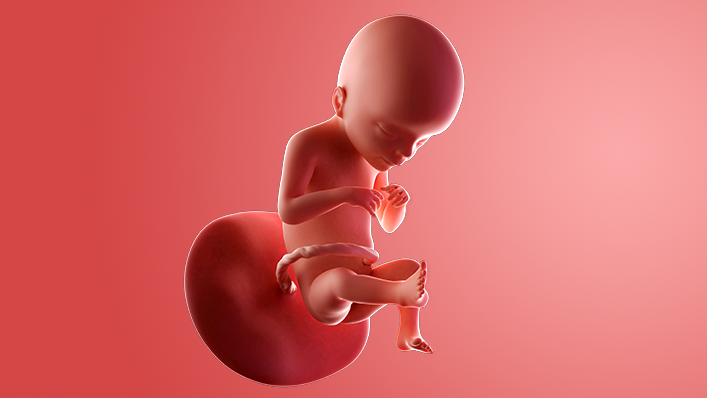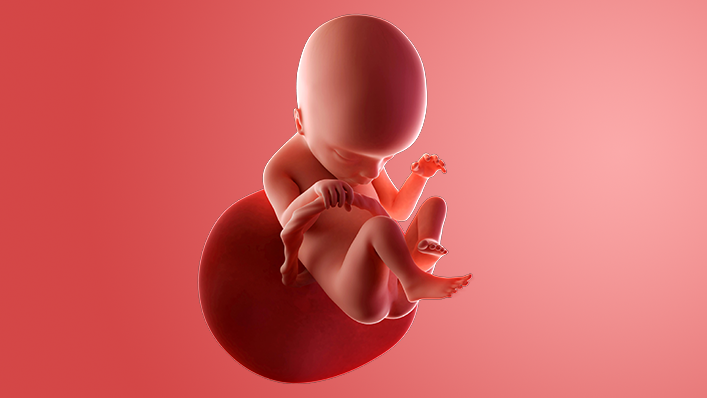What's happening in my body?
It's great for you and baby to stay active, but some exercises, such as running, could become uncomfortable.
This is because the hormone "relaxin" loosens up your ligaments, leaving your back, knees and ankles without their usual support.
Tips for better sleep
Not getting enough sleep in pregnancy can be very frustrating. You could try these tips for better sleep:
- practise beditation – a mixture of meditation and gentle stretches designed to help you drift off
- sleep on your side
- use pillows to support your bump and any aching muscles
- try sleeping with a pillow between your knees
The NHS website has remedies for sleep problems during pregnancy.
2nd trimester pregnancy symptoms (at 19 weeks)
Are you worried about anything? Trust your instincts and share any worries with your health professional.
Watch a video from Tommy's about how to speak up in pregnancy.
Your signs of pregnancy this week could include:
- tiredness and sleeping problems
- stretch marks (see week 17 for information about stretch marks)
- swollen and bleeding gums (week 13 has information about gum health during pregnancy)
- pains on the side of your pregnant belly, caused by your expanding womb (known as "round ligament pains")
- headaches (read about headaches in pregnancy on NHS.uk)
- nosebleeds
- pelvic pain (read about coping with pelvic pain in pregnancy on NHS.uk)
- bloating and constipation (read about bloating on week 10's page)
- indigestion and heartburn (week 25 talks about digestive problems)
- sore breasts
- leg cramps
- feeling hot
- dizziness
- swollen hands and feet
- urine infections
- vaginal infections (see week 15 for vaginal health)
- darkened skin on your face or brown patches - this is known as chloasma or the "mask of pregnancy"
- greasier, spotty skin
- thicker and shinier hair
You may also experience symptoms from earlier weeks, such as:
- morning sickness (read about dealing with morning sickness on week 6's page)
- weird pregnancy cravings (read about pregnancy cravings on week 5's page)
- a heightened sense of smell
- mood swings (week 8's page has information on mood swings)
- a white milky pregnancy discharge from your vagina and light spotting (seek medical advice for any bleeding)
What does my baby look like?
Your baby, or foetus, is around 15.3cm long from head to bottom. That's approximately the size of a beef tomato.
Their adult teeth are starting to grow, and they are lining up behind the first set.
Your baby's putting on weight, getting ready for the birth in about 21 weeks' time.

Action stations
You might still be thinking about where to give birth – there's plenty of time to decide. Read about your options on where to give birth on the NHS website.
It's important to find somewhere that meets your needs and makes you feel supported.
More in week-by-week

Week 20
You're now halfway through your pregnancy!
More in week-by-week guide to pregnancy


